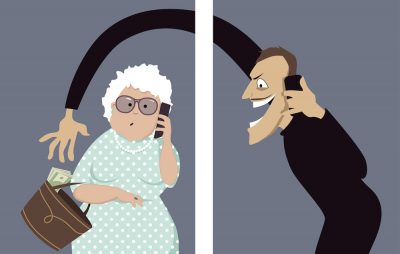
How to Improve Trust in Home Care
The home care industry is plagued by mistrust. While most agencies provide quality, trustworthy services to their patients without incident, a few bad apples across the country have tarnished the industry’s reputation. From elder abuse and fraud, to stories of theft and maltreatment, news outlets, it seems, have no shortage of material to work with. What is the cause of these incidents? How is it that the home care industry has allowed for such problems in the first place? It all begins with how the industry is regulated. Here we will explain one simple fix that would greatly restore trust in home care.
Home care services are not regulated by any federal agency. Instead, rules and regulations are left to the states to determine. There is no consistency from state to state in the breadth of licensure requirements imposed on agencies. In Connecticut, for example, there are few to no requirements to start a home care company. Conversely, California has begun imposing more rigid requirements – and enforcing them – which has caused a recent attrition of agencies across the state who had been operating under questionable circumstances. As far as trust in home care is concerned, this is cause for concern.
What’s more important to understand is while agencies are regulated, caregivers are not. This has left the industry open to problems because it has allowed caregivers who have committed past transgressions to move from one agency to the next. A caregiver who steals from or abuses a patient will face dismissal, but unless charges are brought against them, there is no system in place to document these acts. These caregivers may then move on to the next agency who have no means by which to know their past offenses. Further inhibiting agencies from weeding out some of these caregivers are labor laws which prohibit employers from uncovering certain information, unless it shows up in a background check. This poses a major problem for trust in home care.
Home caregivers work in a privileged position, meaning they are able to make a direct positive difference in the lives of their patients. At the same time, they are in a position to do some real harm. It is also an intimate profession where caregivers and patients have immediate and impactful contact. What makes the home care industry stand out is as compared to other professions with similar influence and access over those they work with, caregivers have no licensure or accountability programs set up by the state to manage them.
Let’s take teachers, for example. They too work in privileged positions as it relates to their daily interactions with students. It is recognized that educators have a direct impact and tremendous influence over their students, and as such they must obtain credentials from the state to qualify for such a position. When a teacher is found guilty of gross neglect of duty, they are not only dismissed from their school, but must also answer to the licensure committee. If found guilty of breaking the rules and standards set forth by the state, teachers are publicly reprimanded and sanctioned for all future employers to see. While this system is not perfect, it is leaps and bounds ahead of how states treat the home care industry.
The solution to help restore trust in home care would be to implement a similar licensure requirement for caregivers as is done with teachers. It would serve two purposes: first, obvious malfeasants would be rooted out during the initial application process; second, the state would have a means to help agencies identify caregivers who have done wrong in the past and prevent future wrongdoing. The obvious argument against this fix is money, but states across the nation may serve as models for how to institute such an organization at little to no cost. In teaching, applicants pay fees to have their candidature reviewed and approved, thereby placing the onus of the cost of licensure on the teachers themselves. The same could easily be done with caregivers.
Of course such a licensure program would create a new barrier to entry for the profession of caregiving, but that’s the point. If caregivers are to have such a close relationship with their patients, the states and industry should focus on making sure they know who it is entering the homes of patients. It is everyone’s business to know who these people are, just like in teaching, and they need to be held accountable for wrongdoing. Such a program would also save agencies time and money since the state will have handled background checks and disciplinary actions. Protecting our children is obvious. The same must be said for our parents. It’s time to restore trust in home care.






